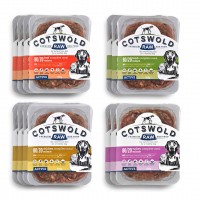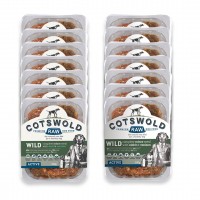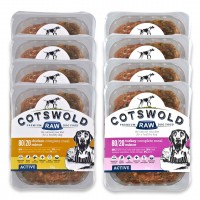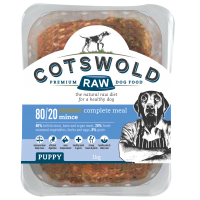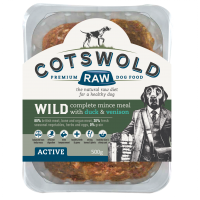How much how often?
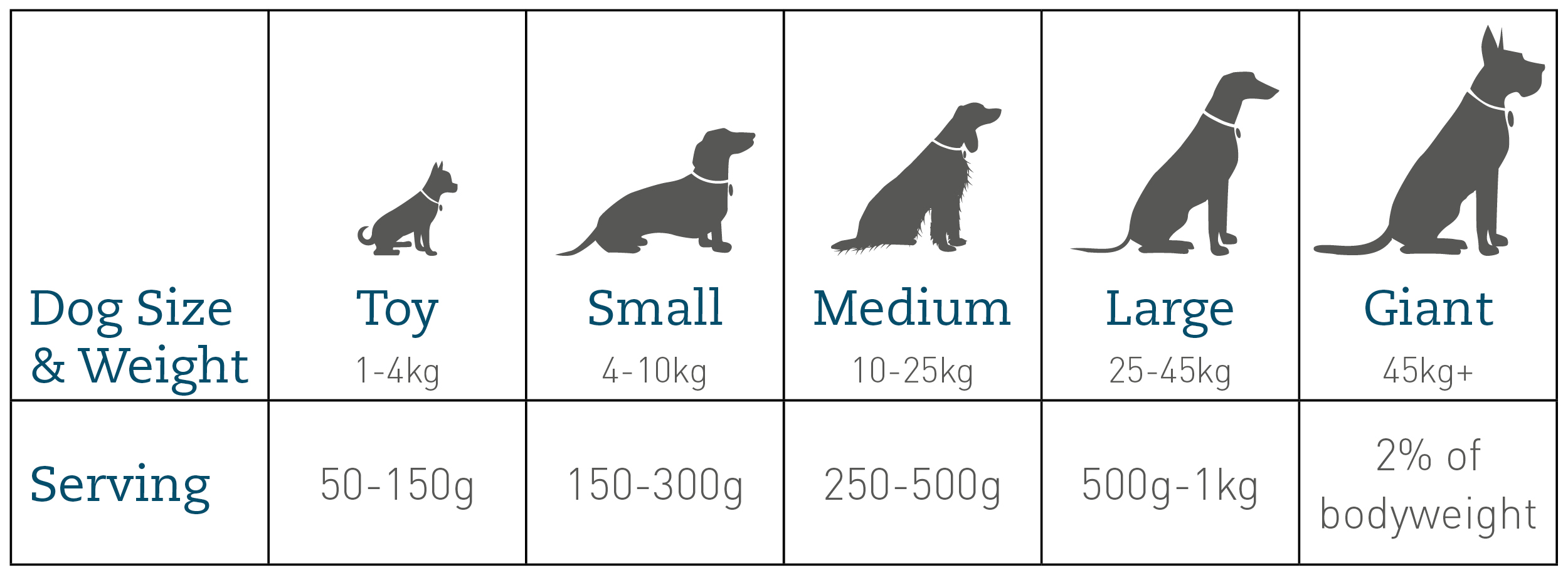
How much raw food should I feed my dog?
All dogs are different and the amount of food they need depends on their daily energy requirement, which varies according to many factors including their breed, activity level, age and environment. In broad terms raw feeding guidelines suggest feeding a daily ration of 2-3% of their bodyweight. Small breed dogs will need more and large breeds, less. Note that credible research (Richard D. Kealey et al, JAVMA, Vol 220, 2002) has shown that dogs fed a restricted diet live longer so we recommend starting at the lower end of the range and increasing the amount as necessary in order to achieve an ideal body condition.
Remember to use your dog’s ideal body-weight – not necessarily its current weight. The above table represents daily needs.
How can I tell if my dog is the correct weight?
Your dog should have a natural waist when viewed from above. For very long-haired dogs you may have to feel this with your hands. You should also be able to feel the shape of the individual ribs with just a little pressure when running your hands over your dog’s chest. If his ribs are nowhere to be found he is overweight but if they are very noticeable he probably needs more food.
Should I feed my dog more than once a day?
While your puppy is growing he or she will need several meals a day. Whether or not you feed an adult dog more than once a day is up to you. A dog’s digestive system is designed to have periods of plenty and then time off.
Should I fast my dog on occasion?
Many owners do and in nature, canines don't eat every day, but there is no need to fast. The theory behind fasting our dogs is that it gives their digestive systems a chance to rest. Most people who fast their dogs do so once a week. Many people give recreational bones on fast days to help their dog get through the day.The choice to fast is a personal decision.
How to feed a puppy?
Puppies need both the right type and right amount of food during their development. They need protein to build growing bodies and calcium for developing bones. However both need to be regulated as excess energy and excess calcium can cause development disorders in puppies. It may seem counter-intuitive that puppies can have too much of a good thing. However a high energy diet increases their growth rate and can lead to a mismatch of bone to body growth. A puppy should be fed approximately the same amount of food as it will need as an adult (refer the above table) or, if you don’t know the ideal adult weight, use a guideline of 10% of the puppy’s current weight. Monitor and weigh the puppy every couple of weeks to ensure he or she is developing appropriately.

